New accounts, old tricks: pro-Maduro regime propaganda on Twitter
A batch of newly created chavista
New accounts, old tricks: pro-Maduro regime propaganda on Twitter
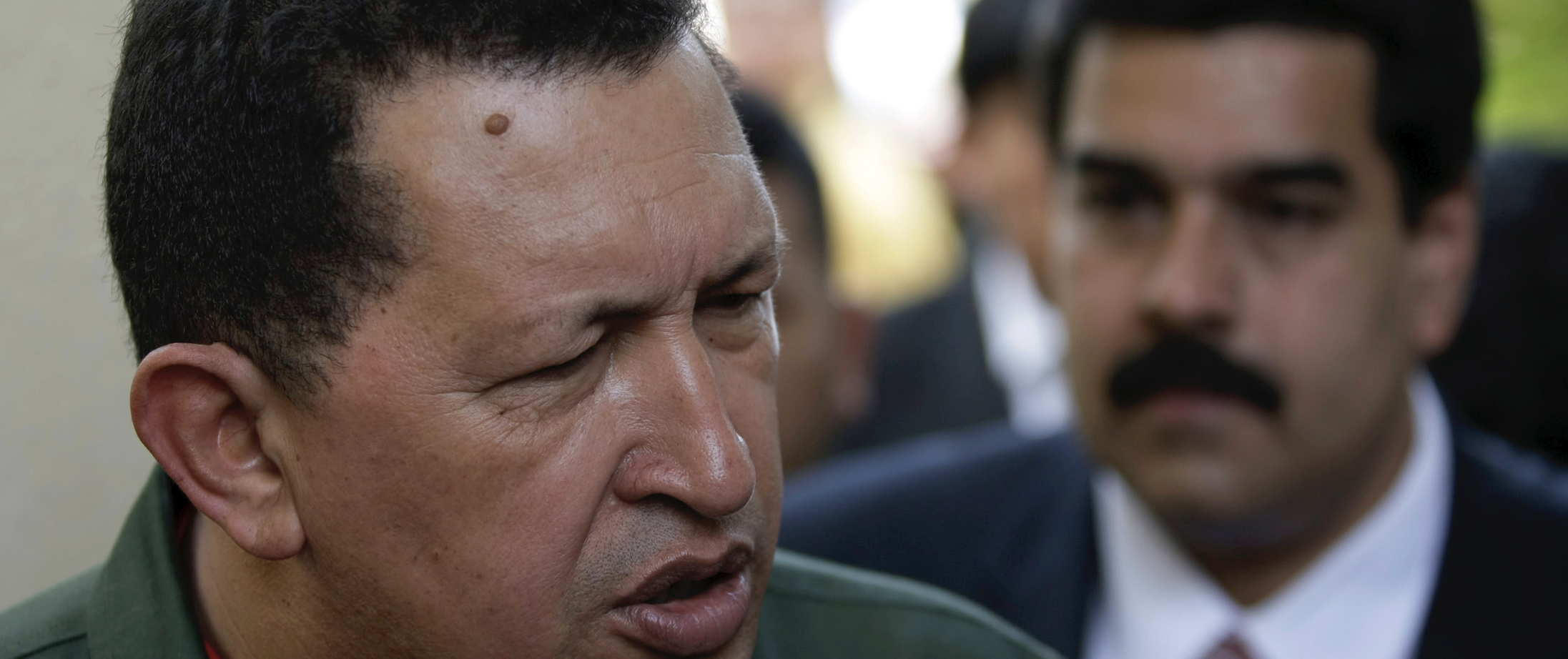
A batch of newly created chavista accounts are mimicking past Venezuelan operations in pushing pro-Maduro hashtags to trend
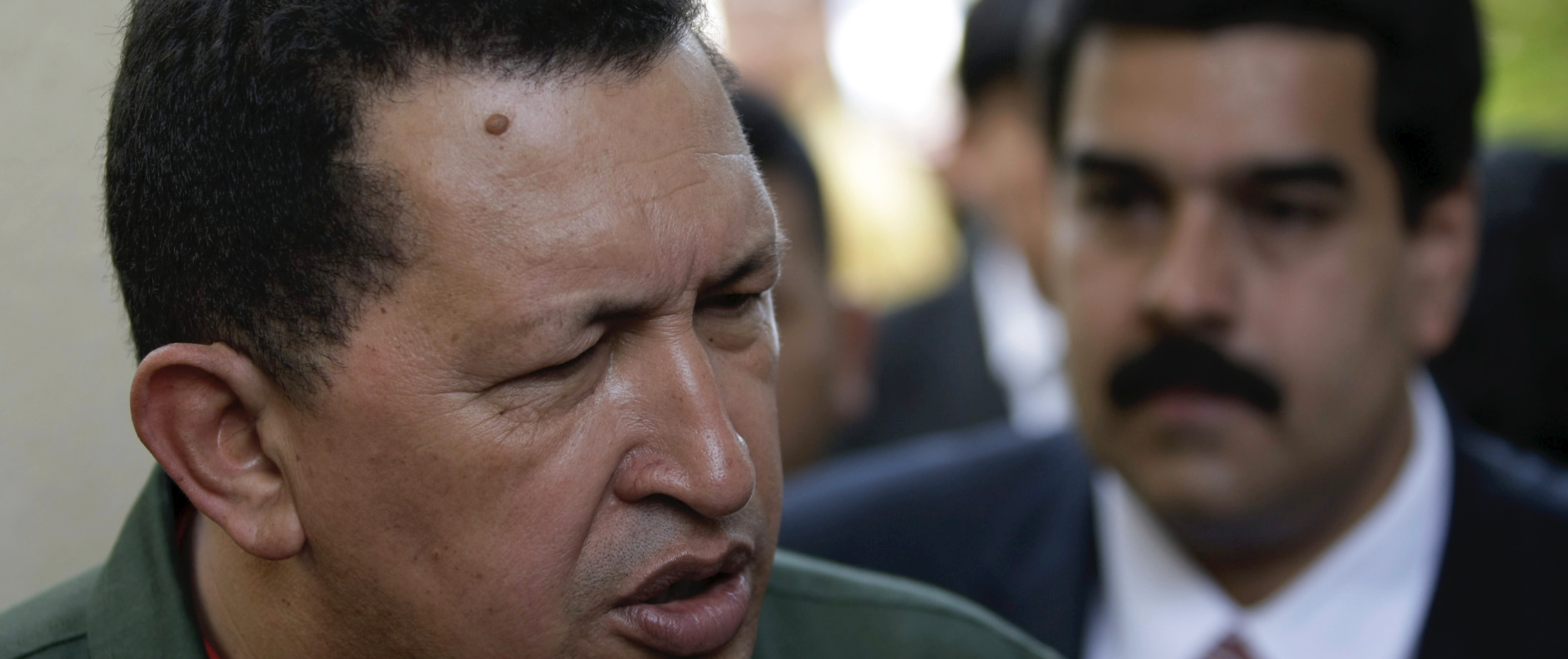
A batch of newly created Twitter accounts are continuously pushing pro-Maduro hashtags to trend on Twitter, employing a tactic reminiscent of previous information operations linked to the Maduro regime.
The regime and its supporters have used Twitter to maintain their influence in Venezuela and internationally as well. The accounts of this network do not evidence massive activity as in previous operations by other networks. This set of accounts, however, tried to gain notoriety through the promotion of hashtags supporting allied countries, such as Iran, while attacking common enemies and their international partners, such as the U.S. government. The DFRLab previously detected this behavior in other inauthentic and suspicious operations. For example, accounts supporting Cuba and Venezuela’s regime promoted hashtags using negative content against U.S. sanctions, while chavista accounts –supporters of the late Venezuelan president Hugo Chávez and his successor, Nicolás Maduro– influenced local protests in Chile using messages against Chilean President Sebastián Piñera.
At least 12 accounts with the prefix “tuiteros” (“tweeters”) followed by the names of various countries and geographical regions, such as Tuiteros Rusia (“Russia Tweeters”) and Tuiteros Palestina (“Palestine Tweeters”), have appeared on Twitter in support of Venezuela’s leader Nicolás Maduro.
The use of the phrase “tuiteros” suggests an effort to amplify pro-Maduro messages by mimicking now-suspended account @Tuiteros_Vzla (Venezuela Tweeters), once a key player in the Maduro regime’s Twitter influence mill. Prior to its suspension, @Tuiteros_Vzla would amplify a “hashtag of the day,” a campaign initiated by Maduro’s Ministry of Communications, in an effort to encourage Twitter users to get a hashtag to trend and therefore dominate public discourse on the platform. There was evidence that the most active tweeters using these hashtags of the day were financially compensated by the regime.
There are signs that this recently created batch of accounts belong to a coordinated effort to support the regime. Eleven of the 12 accounts were created over a period of 24 hours between May 21 and May 22, 2020. Additionally, most of them have the same biography and the same banner, use “Twitter for Android” as the primary tweet client, and have set their locations to the region they allegedly represent. Given the connections can be drawn through superficial similarities, if these accounts are connected, this would represent a relatively unsophisticated operation, as the operators have not endeavored to differentiate their replicated accounts in less obvious ways.
Supporting regime interests
So far, these new accounts have not been used to amplify the regime’s hashtags of the day; instead, they have focused more broadly on narratives that benefit Maduro and his geopolitical allies.
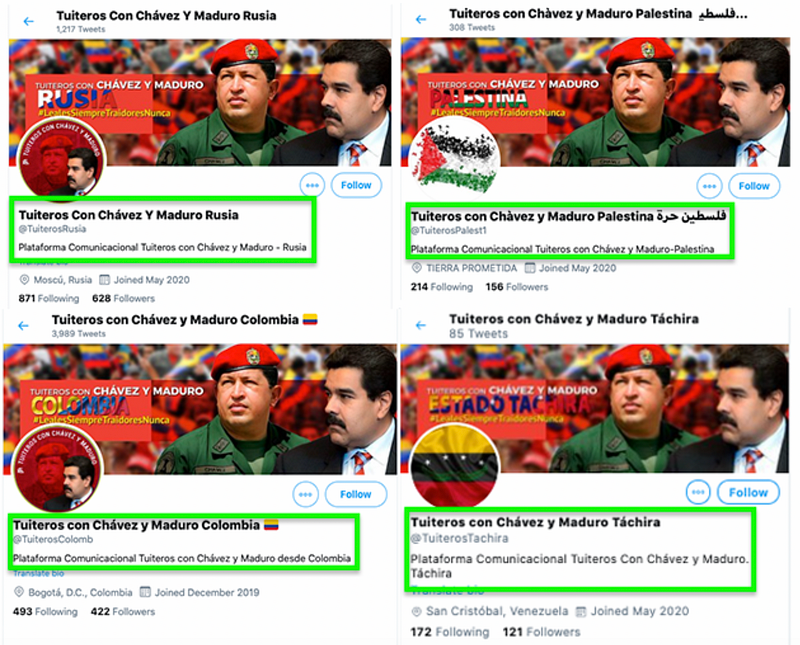
While the accounts did not amplify official hashtags of the day, they used other hashtags in 95 percent of their tweets (4,505 out of 4,752 tweets) posted between May 20 and June 10, according to a DFRLab search using Brandwatch. The most used of these hashtags was #GuaidoGameOver with 1,089 mentions, followed by #directvandaalcdtm (“DirectTV go away”), with 635 mentions, #SomosAntifaVenezuela (“We are Antifa Venezuela”), with 505, and #ganaseguidoreschavistas (“Get chavista followers”), with 371. For instance, #GuaidoGameOver trended on June 3–4, when Maduro celebrated the defeat of an attempted coup on May 3. Maduro claimed Juan Guaidó was involved in the plan to oust him, but Guaidó denied Maduro’s accusations.
Another of the hashtags, #ganaseguidoreschavistas, is deployed every Sunday by chavista accounts to build followers, usually appearing in the trending topics.
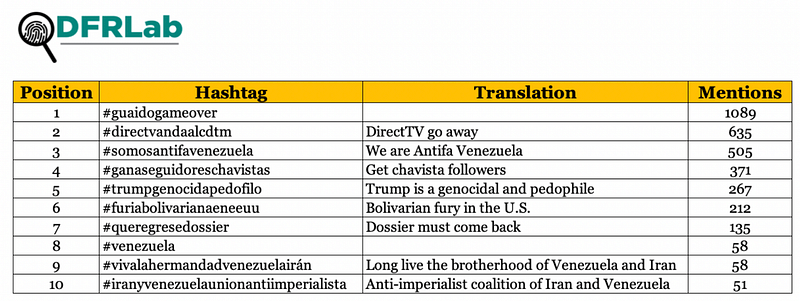
The accounts also amplified voices of Maduro regime officials. They tagged Diosdado Cabello, Maduro’s second-in-command, in 54 tweets, including original tweets, retweets, and replies, while Maduro’s account was tagged in 45 tweets. Furthermore, the account @amelia74698445, which the DFRLab previously identified for displaying suspicious bot-like features and inauthentic behavior, was the third most mentioned account in 26 tweets, often tagged in tweets requesting more chavista followers.
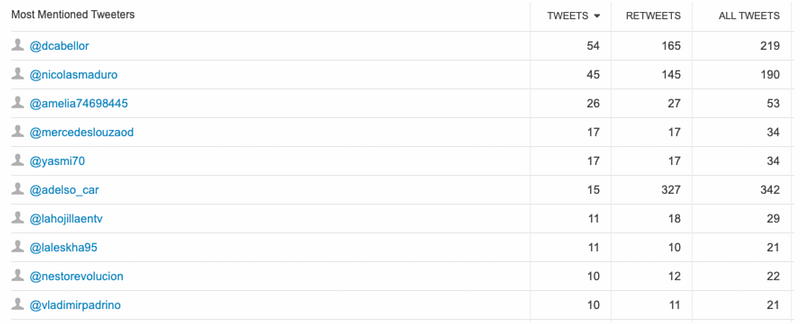
Unlike the original @Tuiteros_Vzla campaign, the accounts participating in this campaign are now dedicated to different regions. The fact that they have their locations set to different places does not necessarily mean that they are managed from different regions and countries, as Twitter allows account operators to define their location however they wish. Setting the accounts to different regions might represent an effort to push pro-Maduro hashtags to trend beyond Venezuela, as Twitter considers user-defined account locations in identifying local trends.
The following map shows four accounts set their location to different countries while seven are located in different Venezuelan regions. As Palestine’s account set its location in “the promised land,” this place was not located in DFRLab’s Brandwatch search. Since “the promised land” is an ambiguous, though not necessarily unusual, description for Palestine, the DFRLab attributed the location of this account to Palestine according to the text in its cover picture and the Palestine flag in its profile picture. Although some of the accounts set their location in countries where Spanish is not the official or a common language, all the content appeared in Spanish.
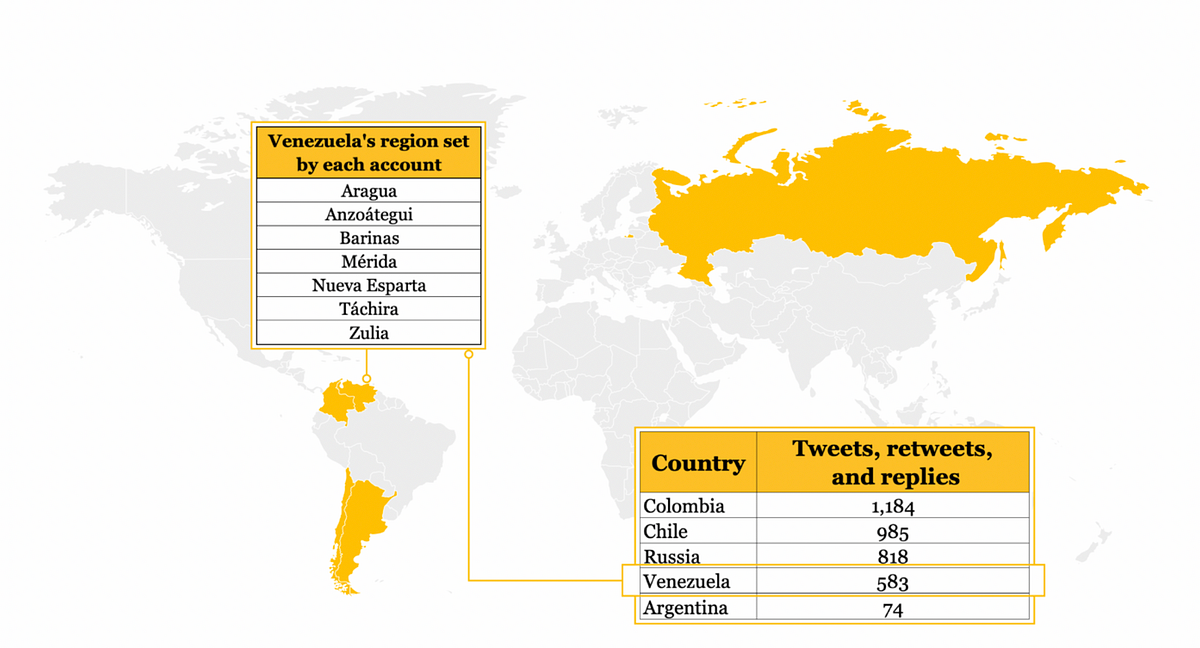
These accounts have a combined 2,501 followers, significantly fewer than the 72,000 followers that @Tuiteros_Vzla garnered between its creation in November 2015 and when it was suspended in September 2019. These new accounts, created in late May 2020, have been active for a significantly shorter period of time and have yet to build a sizable audience.
Among the set, the account with the most followers (483) was @TuiterosRusia. It was one of the most active accounts pushing narratives related to Juan Guaidó, who is recognized by more than 50 countries as interim president of Venezuela; a fuel shipment sent from Iran to Venezuela that became a diplomatic issue following a statement from the U.S. government; and the George Floyd protests in the United States. According to a search using social listening tool TruthNest, a May 24 tweet by @TuiterosRusia about Iranian oil tankers that sailed into Venezuelan waters garnered 278 retweets and 1,900 likes by June 10. The post included two pro-Iranian hashtags and a picture of Qasem Soleimani, the major general of Iran’s Islamic Revolutionary Guard Corps (IRGC) killed by the United States in early January, alongside Ayatollah Khamenei, Iran’s Supreme Leader. The post used the hashtags #GraciasIran (“Thanks, Iran”) and #IranYVenezuelaUnionAntiimperialista (“Iran and Venezuela, Anti-imperialist Coalition”). The account is active on Twitter, with 42 tweets per day on average since its creation. On June 5, it used the hashtag #SomosAntifaVenezuela (“We are antifa Venezuela”) 143 times.
Tuiteros Russia was the third most active account using the hashtag #FuriaBolivarianaEnEEUU (“Bolivarian fury in the U.S.”), which trended on Twitter in Venezuela on May 30. The DFRLab previously identified signs of platform manipulation involving this hashtag, as only 7 percent of the tweets were original posts, and 10 percent of the most active accounts generated 43 percent of the tweets. @TuiterosRusia used this hashtag 68 times.

While these newly created accounts have yet to build as sizeable a follower base as the @Tuiteros_Vzla account did prior to its suspension in 2019, they nonetheless appear to coordinate among themselves to post similar content and amplify Venezuelan regime propaganda.
Moreover, the accounts appear to hew to the Maduro regime’s diplomatic and geopolitical interests, strategically employing hashtags in support of the regime’s allies, notably Iran, while opposing Maduro’s adversaries, such as Juan Guaidó and the United States.
Daniel Suárez Pérez is a Research Assistant, Latin America, with the Digital Forensic Research Lab.
Luiza Bandeira is a Research Associate, Latin America, with the Digital Forensic Research Lab.
Follow along for more in-depth analysis from our #DigitalSherlocks.

